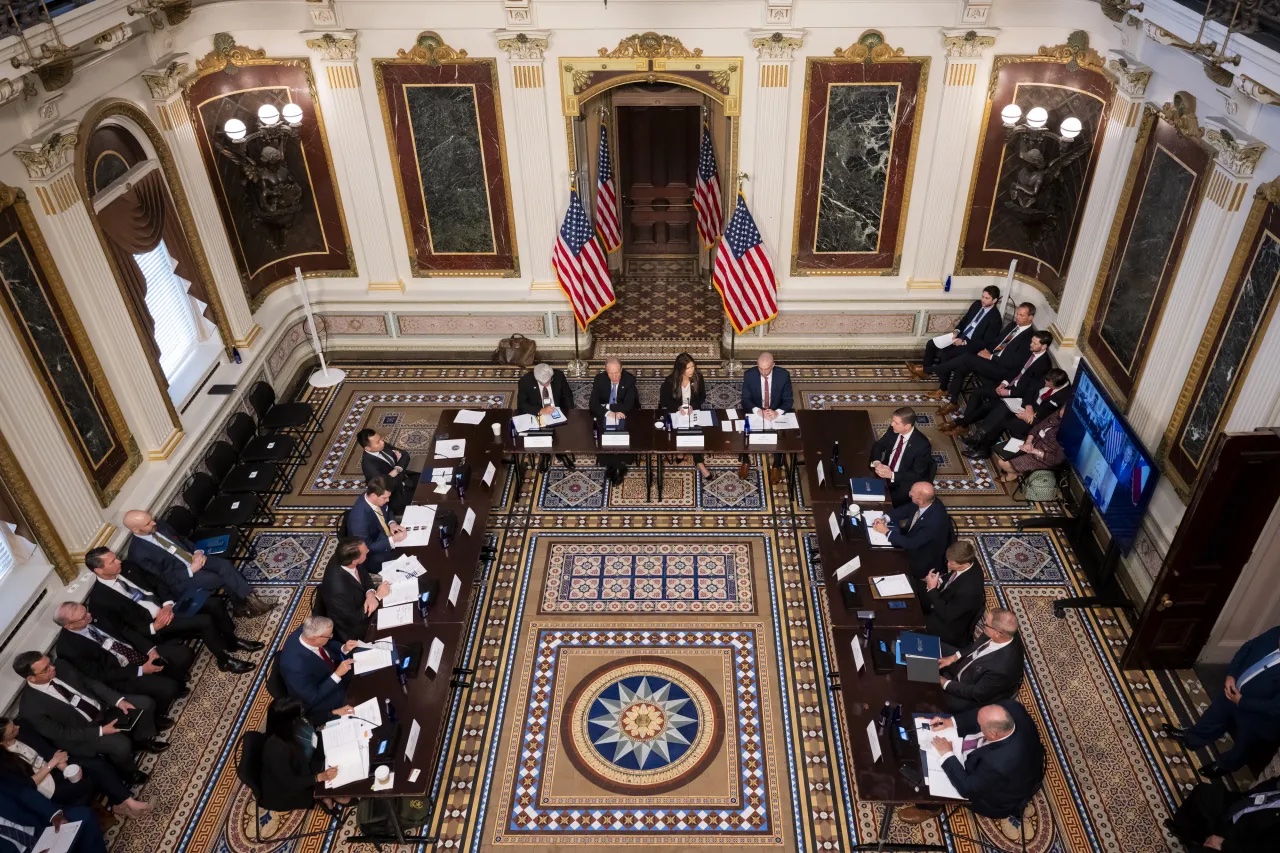
- Details
- By Chez Oxendine
- Policy and Law
The Federal Emergency Management Agency seeks to hear from tribes about potential changes to the agency as the Trump administration backs away from earlier plans to eliminate FEMA entirely.
The FEMA Review Council has announced a series of listening sessions for tribal leadership through the end of August and into September. An in-person session is scheduled for Aug. 26 in Oklahoma City, though a specific location and time have not been announced according to a FEMA “Dear Tribal Leader” letter.
The sessions come as the administration has shifted its approach to FEMA after initially calling for the agency's complete elimination. President Trump said in June that the agency could be phased out as soon as December 2025, but administration officials have more recently said abolishing FEMA "is not on the agenda" and changes will likely amount to a “rebranding” according to a senior White House official quoted in The Washington Post.
The potential changes would affect an agency that has made significant efforts to strengthen tribal relations in recent years. In 2022, FEMA released its first-ever National Tribal Strategy, developed with input from 135 representatives from 78 tribal nations. The strategy called for expanded communications and training with tribal nations and set aside $50 million specifically for tribes through the Building Resilient Infrastructure and Communities grant program.
That same year, FEMA appointed Kelbie Kennedy, a citizen of the Choctaw Nation of Oklahoma, as the agency's first National Tribal Affairs Advocate. Kennedy was tasked with ensuring FEMA lived up to its treaty and trust responsibilities to tribal nations but left the federal government in January 2025 to return to the private sector.
The administration has already made significant changes to FEMA, including canceling disaster preparedness grants and reducing staff. The Trump administration canceled billions of dollars in disaster preparedness grants, describing the spending as “ineffective” and part of efforts to eliminate “waste, fraud and abuse.”
“The overall focus of this initiative is to gather comprehensive input from tribal communities to enhance FEMA's future operational posture,” the FEMA letter to tribal leaders reads. “Your feedback will be used to inform and influence the FEMA Review Council's report, ensuring that tribal perspectives and needs are adequately represented.”
Virtual listening sessions are scheduled for “the week of Sept. 8 and Sept. 15,” though FEMA did not provide specific times or dates. The agency did not respond to requests for comment or updates on the times at time of writing, nor had it published updated information.
Attendance to the tribal consultation sessions is limited to tribal leaders or their representatives, who are asked to email [email protected] to RSVP for the event.
The FEMA Review Council also welcomes written comments that can be emailed to [email protected] or mailed to 2707 Martin Luther King Jr. Avenue, Washington, D.C., 20528-0078. Letters should be addressed to the attention of federal officer Patrick Powers.
The sessions are intended to inform the review council, co-chaired by Secretary of Defense Pete Hegseth and Secretary of Homeland Security Kristi Noem, about tribal insights and thoughts on FEMA’s work going forward.
